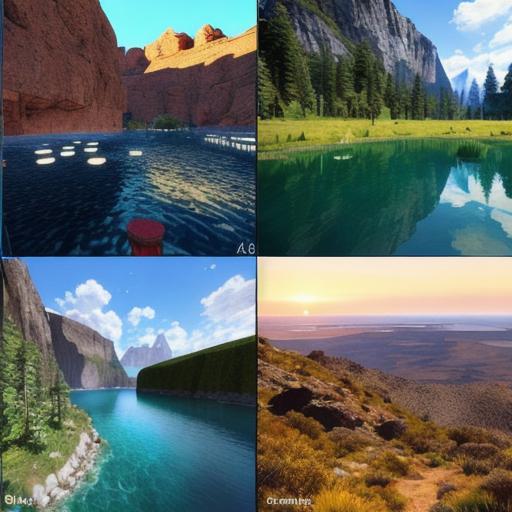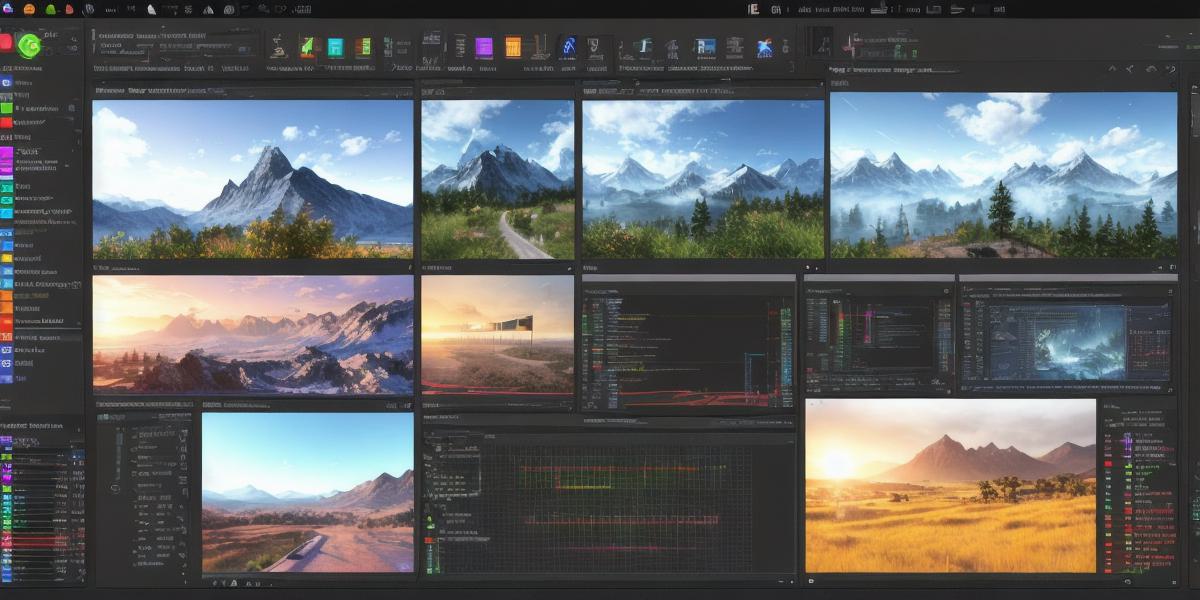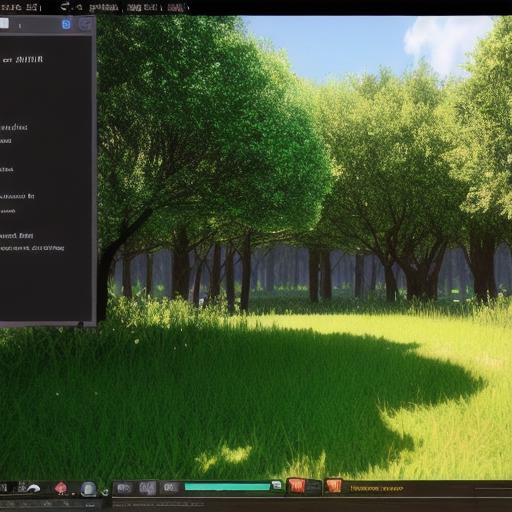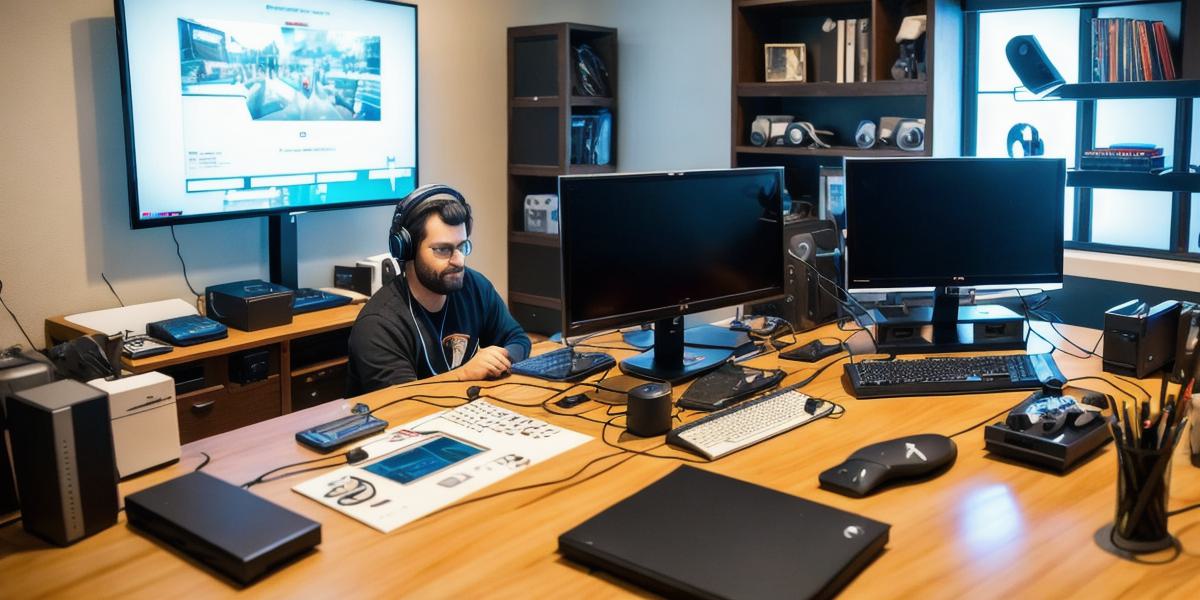Creating and developing video games is a complex process that requires a variety of tools and skills. In this article, we will explore the essential tools needed to create engaging and immersive video games. We will discuss the hardware and software requirements, the game engines, programming languages, and other tools used in game development.
Hardware Requirements for Game Development
To develop a video game, you need a computer with the necessary hardware components. The minimum hardware requirements include:
- Processor: An Intel Core i5 or AMD Ryzen 5 processor is sufficient for most games. However, more demanding games require a faster and more powerful processor such as an Intel Core i7 or AMD Ryzen 7.
- RAM: At least 8GB of RAM is required to run most games smoothly. However, for more complex games with multiple open applications and processes running in the background, you may need up to 16GB of RAM.
- Storage: A solid-state drive (SSD) is essential for game development as it provides faster read/write speeds than a traditional hard disk drive (HDD). An SSD with at least 250GB of storage space is recommended.
- Graphics card: The graphics card determines the quality and realism of the visuals in a game. A dedicated graphics card such as an Nvidia GeForce or AMD Radeon series is required for most games, but high-end games may require a more powerful card such as an Nvidia Titan or AMD RX series.
- Input devices: A computer with a keyboard, mouse, and display is sufficient for game development. However, you may also need additional input devices such as a controller or joystick depending on the type of game you are developing.
Software Requirements for Game Development
In addition to hardware requirements, you will also need software tools to develop a video game. The essential software tools include:
- Integrated Development Environment (IDE): An IDE is a software tool that integrates multiple development tools such as a text editor, debugger, and interpreter/compiler into a single application. Examples of popular IDEs for game development include Unity Hub, Visual Studio Code, and Eclipse.
- Game engines: A game engine is a software framework that provides pre-built assets and tools for creating video games. Examples of popular game engines include Unity, Unreal Engine, and CryEngine.
- Programming languages: Video games are often developed using programming languages such as C, C++, Python, and JavaScript. Each programming language has its strengths and weaknesses, and you will need to choose the one that best suits your needs.
- Version control system: A version control system (VCS) is a tool that allows you to track changes made to your code and collaborate with other developers. Git is a popular VCS used in game development.
- Debugging tools: Debugging tools such as profilers, debuggers, and logging tools are essential for identifying and fixing errors in your code. Visual Studio Code has built-in debugging tools, while Unity Hub provides access to Unity’s debugging tools.
Game Engines for Game Development
A game engine is a software framework that provides pre-built assets and tools for creating video games. Game engines are essential for game development as they provide a lot of the heavy lifting, such as graphics rendering and physics simulation, which would otherwise be difficult to implement yourself.
The most popular game engines include:
- Unity: Unity is a cross-platform game engine that supports 2D and 3D game development for multiple platforms including Windows, Mac, iOS, Android, and consoles. It has a large community of developers and a vast library of pre-built assets and tools.
- Unreal Engine: Unreal Engine is a 3D game engine that supports real-time rendering and animation. It is widely used in film and television production, as well as video games. It has a powerful graphics rendering engine and a large community of developers.
- CryEngine: CryEngine is a 3D game engine that provides advanced features such as physics simulation and AI. It is known for its realistic graphics and is often used in high-end gaming. However, it can be more challenging to use than other engines.
- Godot: Godot is an open-source 2D and 3D game engine that supports cross-platform development. It has a simple interface and a growing community of developers, making it a good choice for beginners.
Programming Languages for Game Development
Video games are often developed using programming languages such as C, C++, Python, and JavaScript. Each programming language has its strengths and weaknesses, and you will need to choose the one that best suits your needs.
- C: C is a popular programming language for game development, particularly for Unity game engines. It is easy to learn and has a large community of developers and resources available online.
- C++: C++ is a powerful programming language that is often used in game development due to its speed and efficiency. However, it can be more challenging to learn and requires more experience than other languages.
- Python: Python is a versatile programming language that is widely used for scripting and automation tasks. While not as commonly used in game development as C or C++, it can still be used for certain tasks such as AI and physics simulation.
- JavaScript: JavaScript is a popular programming language for web-based games and is often used in combination with HTML and CSS. It is easy to learn and has a large community of developers.
Comparing Game Engines and Programming Languages
When choosing a game engine and programming language, it’s essential to consider your project’s requirements and your team’s expertise. Here are some key factors to consider:
- Game engine features: Consider the features and capabilities of each game engine, such as graphics rendering, physics simulation, and AI. Choose the one that best suits your project’s needs.
- Programming language support: Consider the programming languages supported by each game engine. Choose a game engine that supports the language you are most comfortable with or have experience working with.
- Community support: Consider the size and activity of each game engine’s community, as well as the availability of resources and documentation online. This can be particularly important for beginners who may need help troubleshooting issues.
- Performance requirements: Consider the performance requirements of your project, such as graphics quality and real-time rendering capabilities. Choose a game engine that can meet these requirements.
- Project size and complexity: Consider the size and complexity of your project. Larger and more complex projects may require a more powerful game engine or programming language to handle the increased workload.
Real-Life Examples of Game Development Tools

Let’s take a look at some real-life examples of game development tools in action.
- Unity: A popular choice for game development, Unity supports both 2D and 3D game development and has a large community of developers and resources available online. Here are some real-life examples of games developed using Unity:
- "The Room" series by Infinity Interactive
- "PUBG Mobile" by Tencent
- "Prince of Persia: Sands of Time" by Ubisoft
- Unreal Engine: Another popular choice for game development, Unreal Engine has a powerful graphics rendering engine and is widely used in film and television production as well as video games. Here are some real-life examples of games developed using Unreal Engine:
- "Fortnite" by Epic Games
- "The Witcher 3: Wild Hunt" by CD Projekt Red
- "Avatar: The Last Airbender – The Legend of Aang" by Mundfish
- Godot: An open-source game engine that supports both 2D and 3D game development, Godot is gaining popularity due to its simple interface and growing community of developers. Here are some real-life examples of games developed using Godot:
- "Mom’s House" by Toni Sauer
- "The Last Door" by Neko Works
- "GNOME3 Shell Game" by Matthew Pauliukonis
Debugging and Optimizing Your Code
Once you have your game development tools set up, it’s essential to debug and optimize your code to ensure smooth performance and a seamless user experience. Here are some tips for debugging and optimizing your code:
- Use debugging tools: Take advantage of the built-in debugging tools provided by your game engine or programming language. These tools can help you identify and fix errors in your code, as well as track performance issues.

- Profile your code: Use profiling tools to analyze the performance of your code and identify bottlenecks or areas where optimization is needed. This can help you optimize your code for better performance and a smoother user experience.
- Optimize graphics: Optimize your game’s graphics by reducing polygon counts, using texture compression, and minimizing draw calls. This can help improve the game’s performance on lower-end hardware.
- Use efficient data structures: Choose the right data structures for your game’s needs to minimize memory usage and improve performance. For example, use arrays or dictionaries instead of linked lists for certain tasks.
- Minimize network latency: If your game is multiplayer, minimize network latency by reducing the amount of data sent over the network and using efficient compression techniques.
Summary
Game development is a complex process that requires a combination of creativity, technical expertise, and attention to detail. By choosing the right tools and following best practices for game development, you can create a high-quality game that provides an engaging and seamless user experience.



